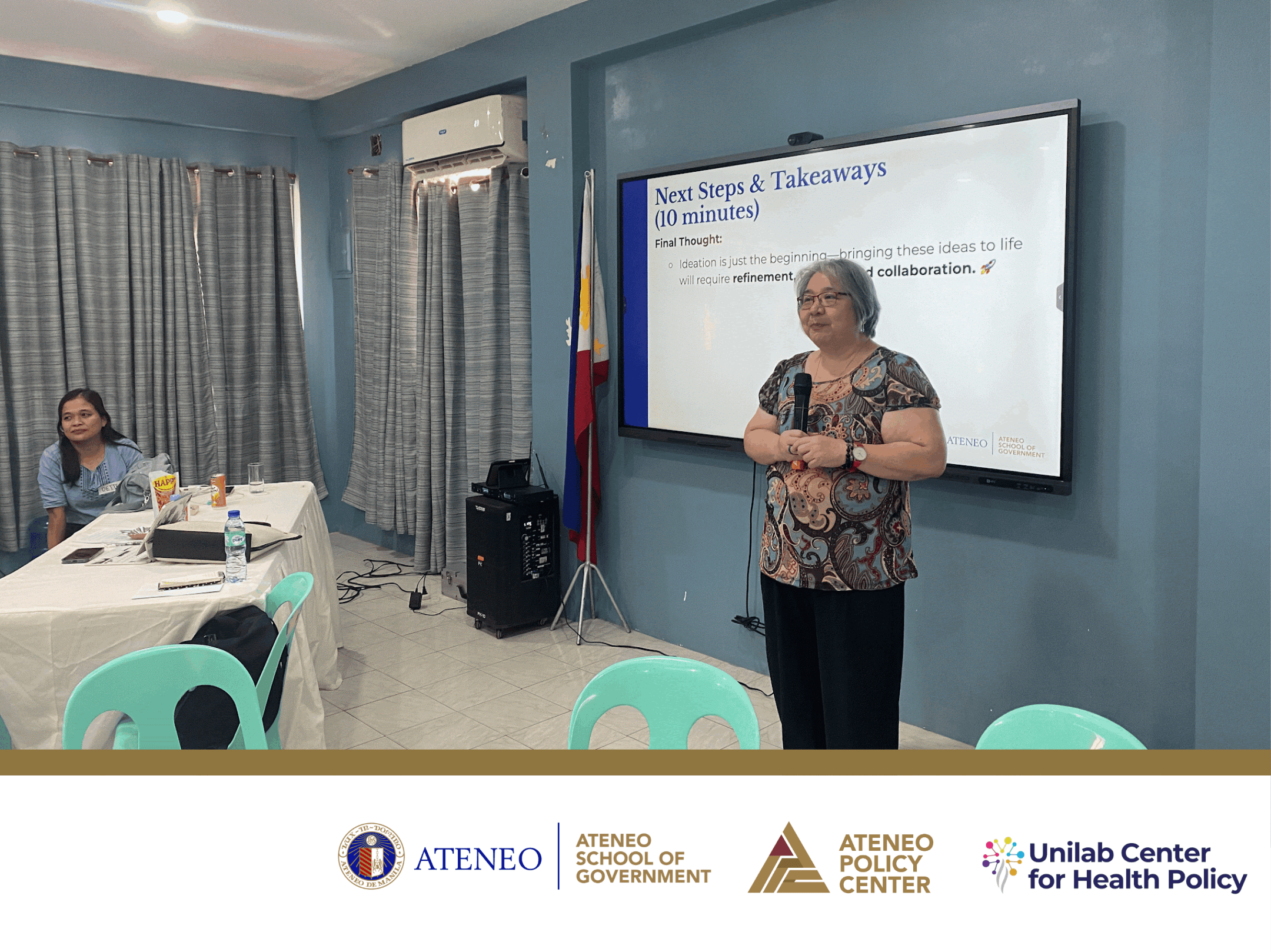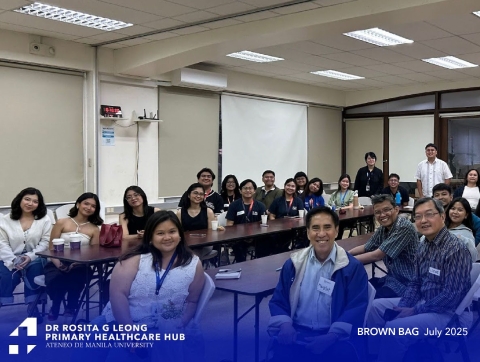Ateneo Policy Center conducts design thinking workshop for local health spending project in Odiongan, Romblon
14 Apr 2025
The Ateneo School of Government, through the Ateneo Policy Center, conducted a two-day design thinking workshop in the Municipality of Odiongan, Romblon as part of its project on Maximizing Local Government Fiscal Performance of Health Budget Project, funded by the Unilab Center for Health Policy. The workshop, held last 31 March to 2 April 2025, included a diverse range of participants from the local rural health unit, Odiongan local government unit, including staff from accounting, treasury, planning and development office, internal audit, and others, Romblon State University, the Provincial Department of Health Office - Romblon, and PhilHealth Romblon.
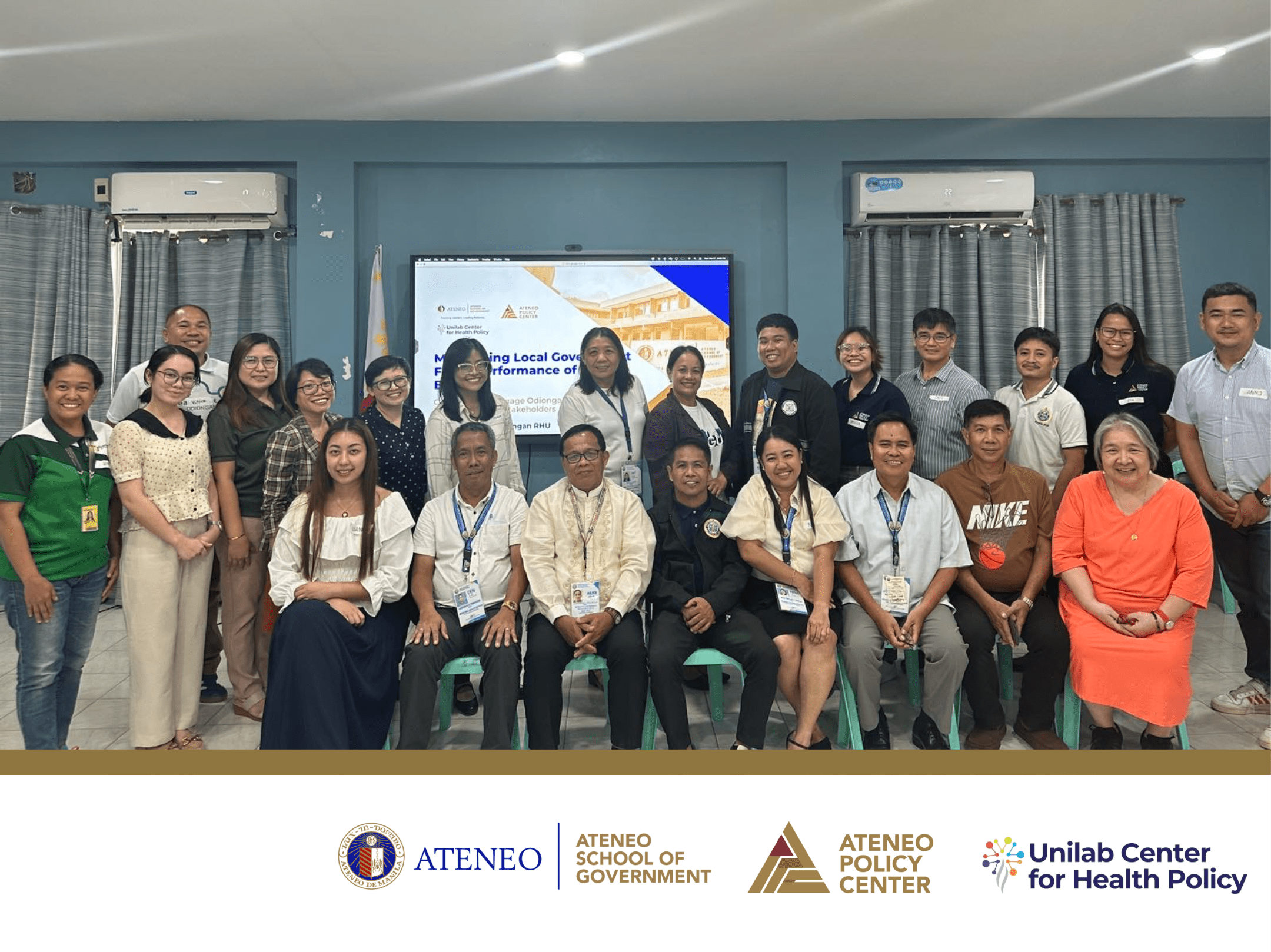
Day 1 (31 March 2025): Courtesy Call and Design Thinking Workshop Part One
Day 1 of the workshop began with a short orientation provided by Dr Marife Yap and Mr Chito Novales on key topics surrounding local health budgeting, including a briefer for local governance for health in the Philippines, health care delivery according to the Universal Healthcare (UHC) Law, public financial management (PFM), and a briefer into the twin projects of analyzing local health expenditure and implementing UHC in Odiongan.
The orientation was followed by a courtesy call with Mayor Trina Firmalo-Fabic, who expressed her appreciation and support for the municipality being selected as one of the project’s sites for the twin projects.
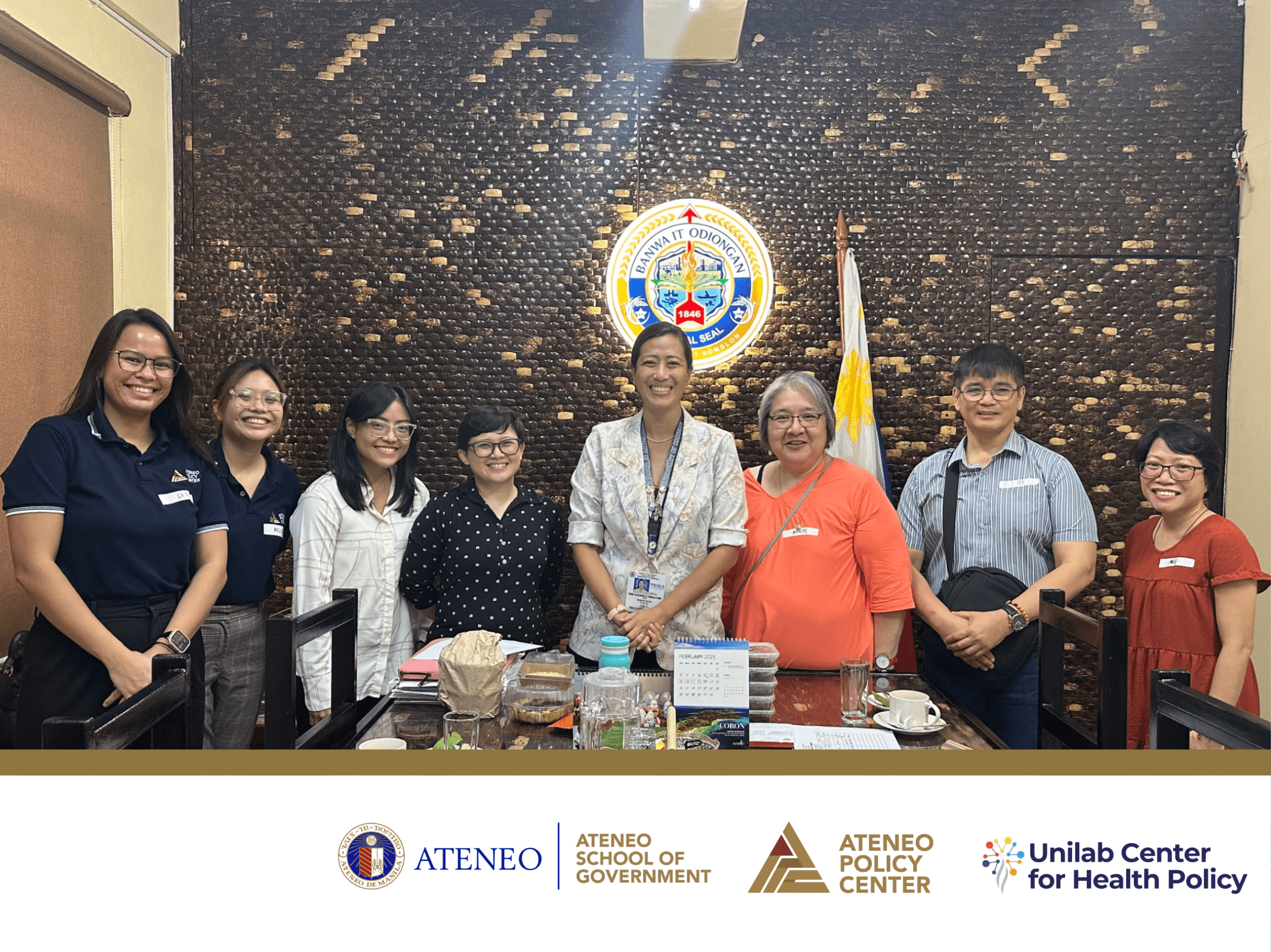
The design thinking workshop officially began in the afternoon. The primary goals of the workshop were to analyze LGU budgeting processes through a structured, creative approach and to uncover and analyze the political, economic, and institutional factors that affect LGU budget optimization and health financing.
The first session of the workshop began with empathizing, where participants were divided into groups and were tasked with identifying various bottlenecks and challenges in the four stages of the budget cycle: preparation, authorization, execution, and accountability.
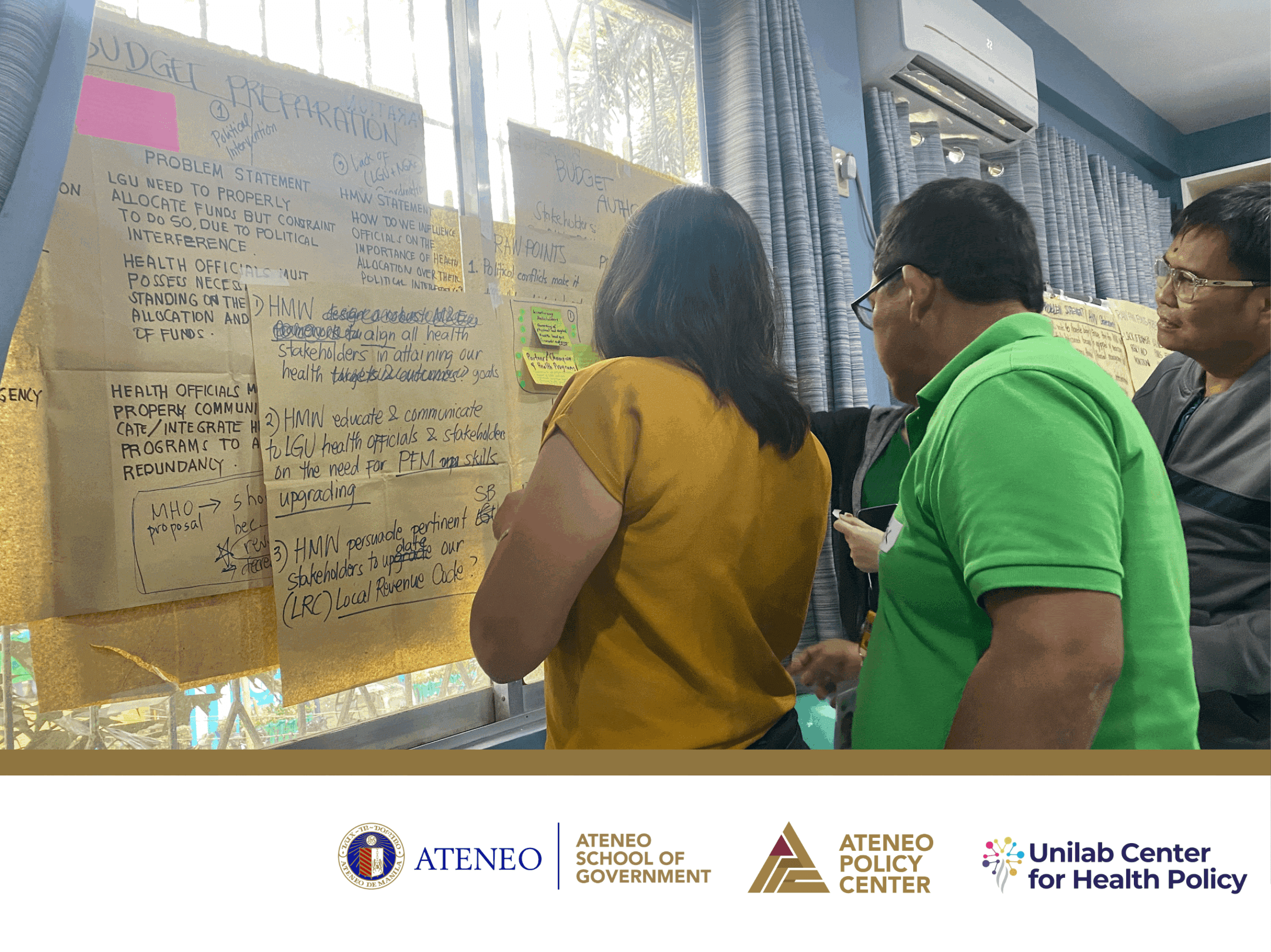
Next, participants were asked to identify key stakeholders in the budget cycle and to frame them using a political economy analysis matrix. Participants mapped out stakeholders based on how high and low their respective interest and power are in local health expenditure and budget processes.
Day 2 (2 April 2025): Design Thinking Workshop Part Two and Post-Event Briefer
Day two of the design thinking workshop focused on defining and ideating to clearly define and prioritize the most significant and actionable PFM-related challenges based on validated insights and rapidly generate innovative and feasible solutions addressing priority pain points through structured ideation.
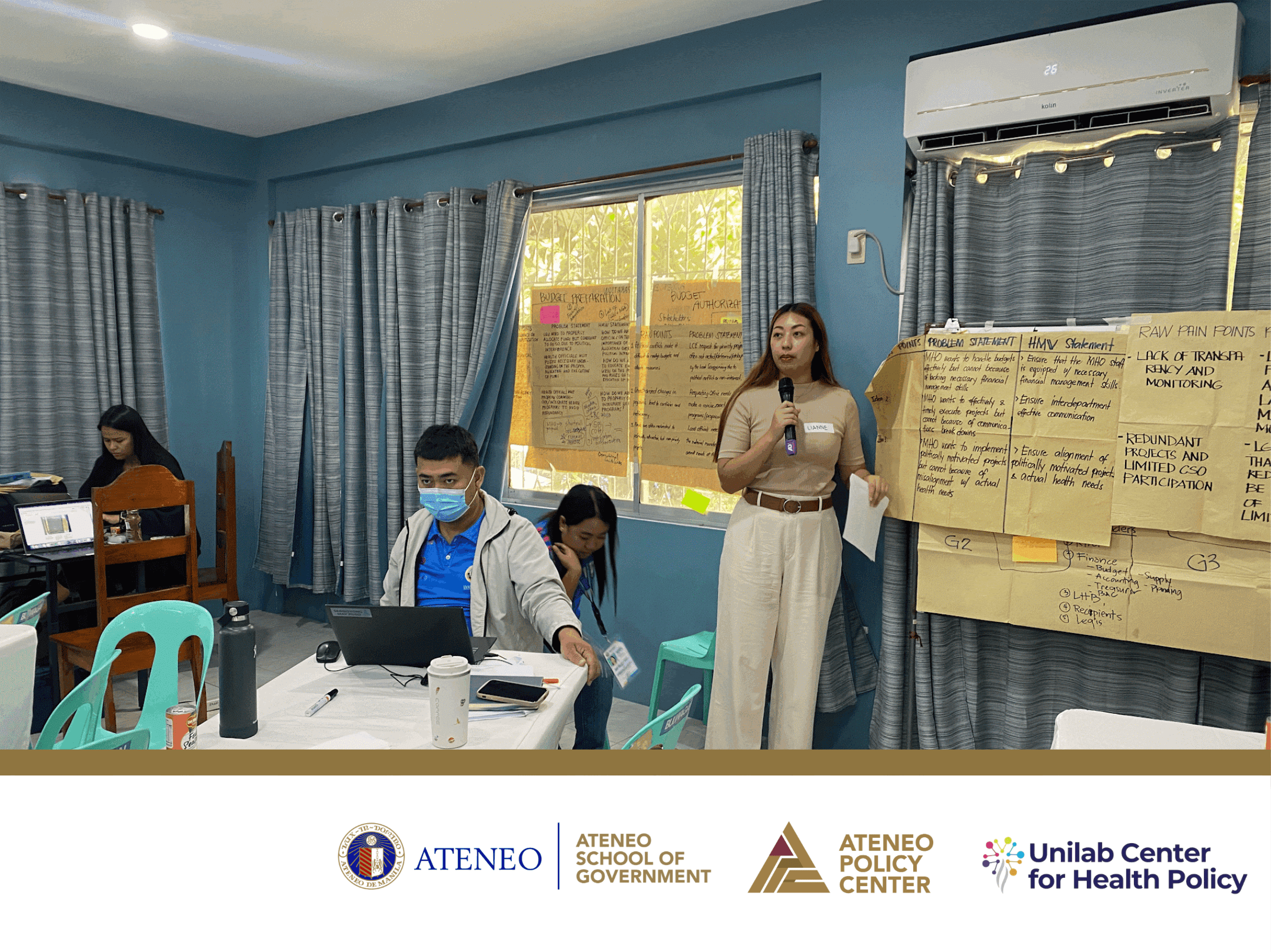
The workshop participants were tasked to revisit the bottlenecks and challenges that they identified along the four stages of the budget cycle from the first day of the workshop. From these challenges, they created “how might we” statements to define actionable challenges that set the stage for solution-oriented ideation.
Afterwards, participants proposed “out-of-the-box” ideas based on the actionable challenges they identified in the previous exercise. This included proposing ideas through brainwriting or rapid brainstorming. At the end of the exercise, the participants gathered in a plenary session to share the ideas they came up with for addressing PFM-related challenges.
The workshop ended with closing remarks by Dr. Marife, who expressed her gratitude to the participants for their shared commitment towards a strengthened local health system, followed by a post-event briefer meeting with Mayor Trina.
